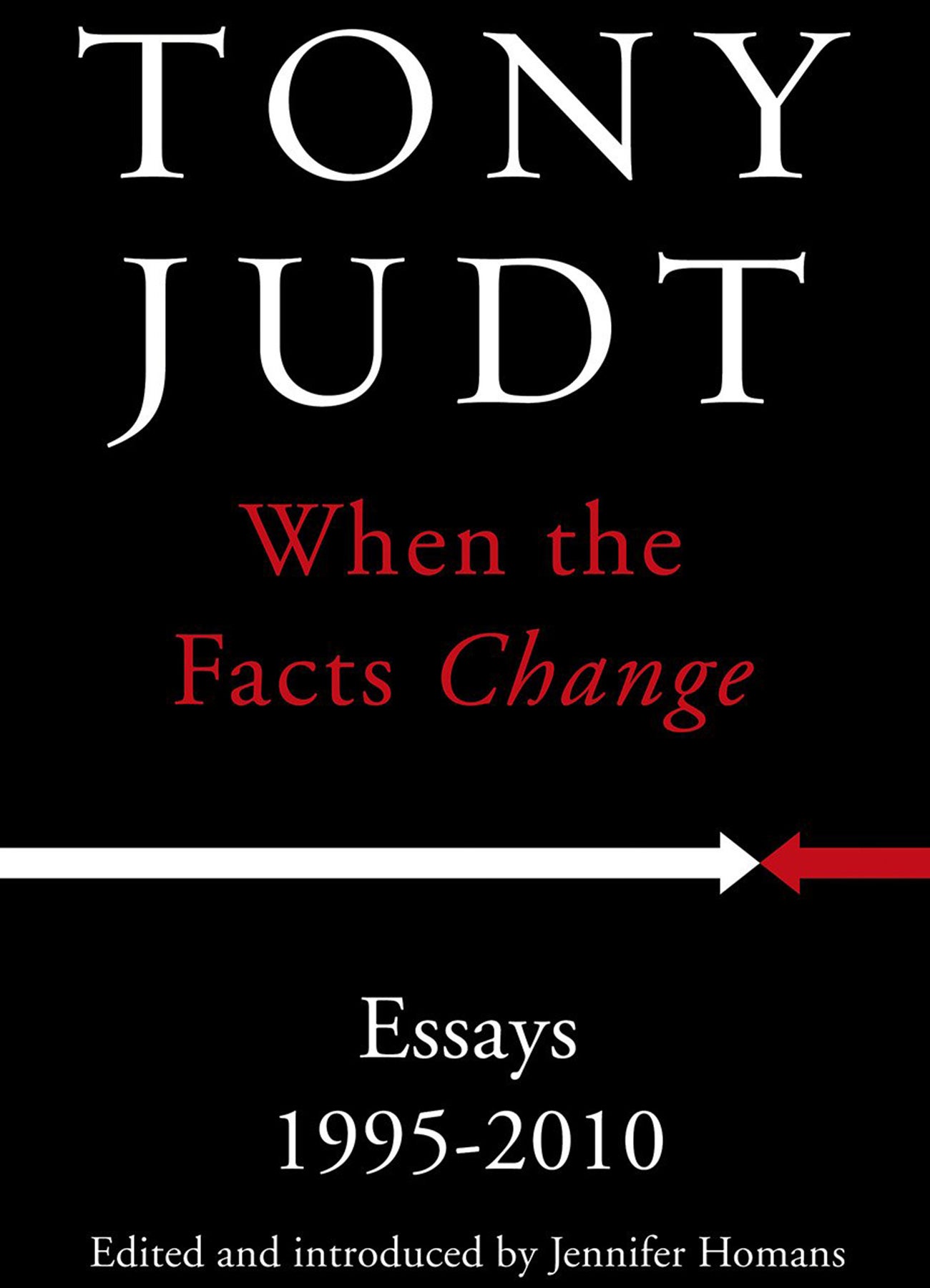When the Facts Change: Essays 1995-2010 by Tony Judt - book review: An idealist who believed there is such a thing as society
Free of barrel-scraping, this is a welcome addition to the historian's oeuvre

Your support helps us to tell the story
From reproductive rights to climate change to Big Tech, The Independent is on the ground when the story is developing. Whether it's investigating the financials of Elon Musk's pro-Trump PAC or producing our latest documentary, 'The A Word', which shines a light on the American women fighting for reproductive rights, we know how important it is to parse out the facts from the messaging.
At such a critical moment in US history, we need reporters on the ground. Your donation allows us to keep sending journalists to speak to both sides of the story.
The Independent is trusted by Americans across the entire political spectrum. And unlike many other quality news outlets, we choose not to lock Americans out of our reporting and analysis with paywalls. We believe quality journalism should be available to everyone, paid for by those who can afford it.
Your support makes all the difference.Sometimes life throws up fortuitous cultural combinations. It was satisfying to watch Polish director Pawel Pawlikowski’s beautiful, devastating film Ida recently while considering the English historian Tony Judt’s posthumous essay collection. Judt’s writing on Eastern European history and identity provided context for Pawlikowski’s drama about Poles living amid the legacy of the Holocaust and the realities of communism.
I doubt Judt, who died of motor neurone disease aged 62 in 2010, would mind me mentioning Ida because his understanding of the ways art and history inform and illuminate each other is one of this book’s many qualities.
Jennifer Homans, Judt’s widow and the book’s editor, sets the tone with her perfectly pitched introduction, offering personal insights and describing “a clear-eyed realist… and idealist who aimed at nothing less than the well-lived life; not just for himself but for society.” Whether discussing Marx or the Marx brothers, the EU or UN, the Middle East or the social function of railways, Judt’s range and clarity are magisterial.
Under five thematic headings, essays appear in chronological order. Judt, an ardent Zionist in the 1960s, sounds increasingly pessimistic about the prospects for peace between Israel and Palestine.
In 2002, he writes: “(Israel) is an oddity among nations not – as its more paranoid supporters assert – because it is a Jewish state and no one wants Jews to have a state; but because it is a Jewish state in which one community – Jews – is set above others, in an age when that sort of state has no place.”
Teaching at American universities allowed Judt to witness the “militarisation” of US society after 9/11. A dangerous tendency today, he says, is the will to “deny continuity and proclaim novelty”, which is why politicians talk about unprecedented threats even though terrorism is the ancient weapon of the weak.
We also risk dismantling 20th-century achievements, including the welfare state, if we forget the dire conditions which necessitated their invention.
Free of the barrel-scraping that often blights posthumous publications, this is a welcome addition to Judt’s oeuvre.
Order for £20 (free p&p) from the Independent Bookshop: 08430 600 030
Join our commenting forum
Join thought-provoking conversations, follow other Independent readers and see their replies
Comments